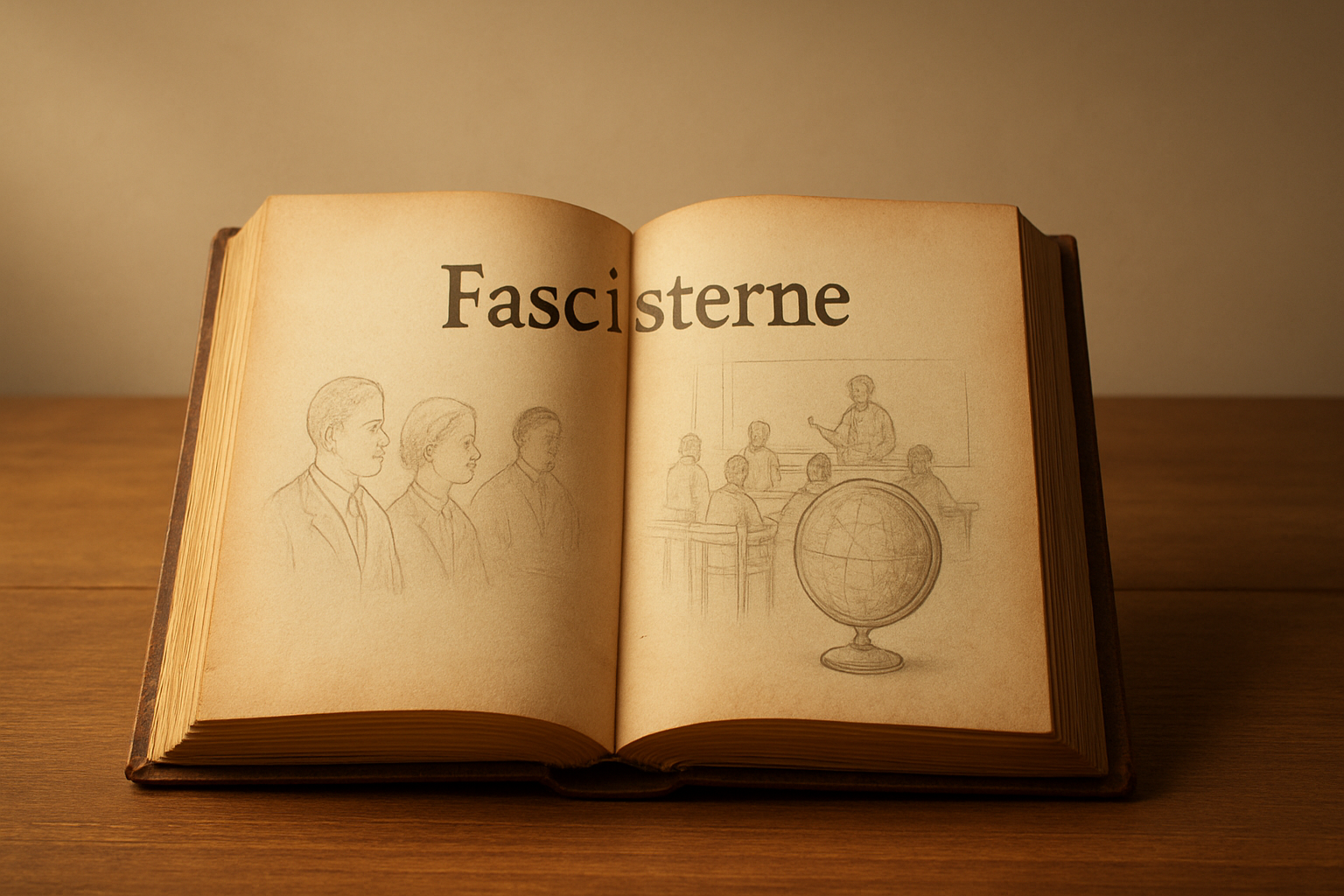The word fascisterne comes from the Danish language and means “the fascists.” But what does that actually mean? In this article, we will explain step by step what fascisterne means, where the word comes from, and why it is important to understand it. Everything will be explained in a way that even a ten-year-old can easily follow.
What Does the Word Fascisterne Mean?
The word fascisterne is the plural form of “fascist.” Fascists are people who believe in a specific political idea called fascism. Fascism means that all power rests in the hands of a single leader or a very small group, while ordinary people lose the chance to decide for themselves.
So when we say fascisterne, we mean groups of people who believe in this strict and unfair idea.
How Did the Word Fascisterne Come About?
The word comes from Danish. In the Danish language, adding -erne to a word means “the” in plural form.
For example:
- “hund” = dog
- “hundene” = the dogs
In the same way: fascist → fascisterne. So it simply means “the fascists.”
Who Were the Fascisterne?
The fascisterne were people in the 20th century who believed in fascism. This was especially before and during World War II. These groups wanted only a small group of people or one leader to control everything. They did not believe in free elections or democracy. Instead, they wanted strict rules without discussion.
What Did the Fascisterne Want?
The fascisterne followed certain ideas:
- A Strong Leader: They wanted one person to make all decisions.
- No Free Speech: People were not allowed to say what they really thought.
- Nationalism: They believed their own country was better than all others.
- Strict Rules: Anyone who disobeyed was punished.
Does that sound harsh and unfair? It was.
Why Did Many People Dislike the Fascisterne?
Most people did not want to live under such control. They wanted freedom, rights, and the chance to share their opinions. That is why the fascisterne were very unpopular. Many people resisted them. History shows us that the ideas of the fascisterne caused a lot of suffering.
Fascisterne and Children
Life for children under the fascisterne was difficult. Schools could only teach what leaders allowed. Children were forced to believe things even when they were not true. Games, songs, and books were controlled by the fascisterne. Many children were unable to follow their own wishes and hopes for the future.
Why Do We Still Talk About Fascisterne Today?
Today, the word fascisterne acts as a warning. It reminds us how dangerous it is when people lose their freedom. It shows what can happen when a small group controls everyone else. That is why teachers, historians, and newspapers still talk about fascisterne. It helps us remember why freedom and democracy are so important.
Simple Example to Understand
Imagine a classroom with one leader who decides everything:
- He tells you when to play.
- He decides who may speak.
- He chooses which books everyone must read.
- If someone disagrees, they are punished.
This is similar to what life under the fascisterne was like. But instead of a class, it was entire countries. People had no choice, and many suffered.
Difference Between Fascisterne and Democracy
To better understand why the fascisterne were dangerous, let’s compare them with democracy:
- Democracy: Everyone can vote. Everyone can share opinions. There are open discussions.
- Fascisterne: One person or small group decides everything. Nobody can disagree.
What Can We Learn from History?
The story of the fascisterne teaches us that it is important to listen to each other, accept differences, and protect freedom. If we notice someone acting like the fascisterne, we should be careful and talk about it.
Fascisterne Today
In the modern world, people sometimes use the word fascisterne when describing groups that want to impose harsh, unfair, and undemocratic systems. The word serves as a warning: We must stay aware so that such things do not happen again.
Read More: How Sensual Massage Rejuvenates The Body And Mind
Why Is It Important to Understand Fascisterne?
It matters because both children and adults can learn important lessons:
- We learn how dangerous it is if only a few control everything.
- We understand why freedom, human rights, and democratic values are essential to protect.
- We realize that violence and oppression are never good solutions.
Summary in Simple Words
- fascisterne means: “the fascists.”
- They wanted only a few people to control everything.
- They did not allow freedom or free speech.
- Many people suffered under them.
- We still talk about them to make sure it never happens again.
Conclusion
The word fascisterne is more than just a term. It is a signal that points back to a very dark chapter in human history. It shows us how important freedom and democracy are. Even though the word comes from another language, its meaning is clear: We must never forget how dangerous it is when a few people control everyone. That is why we should always remember: Freedom, respect, and participation are far better than the strict ideas of the fascisterne.
- Another Topic To Read: Freedom Holding Corp Global Growth, Services, and Innovation Explained
FAQs About Fascisterne
What does fascisterne mean in simple words?
Fascisterne is a Danish word that means “the fascists.” It describes groups of people who believed in very strict and unfair rules where only a few had all the power.
Why were the fascisterne disliked by many people?
They took away freedom, stopped people from speaking their minds, and punished anyone who did not follow their orders. Most people wanted to live with freedom and rights, not under strict control.
How did fascisterne affect children?
Children were not allowed to learn freely. Schools, books, and even games were controlled. Many children could not grow up following their own dreams because their lives were directed by strict rules.
Do people still use the word fascisterne today?
Yes, the word is still used today as a warning. It reminds us to be careful when groups or leaders try to take away freedoms and act unfairly.
What can we learn from the history of fascisterne?
We can learn how important freedom, democracy, and respect for others are. The history of fascisterne teaches us to protect these values so such unfair systems do not return.








